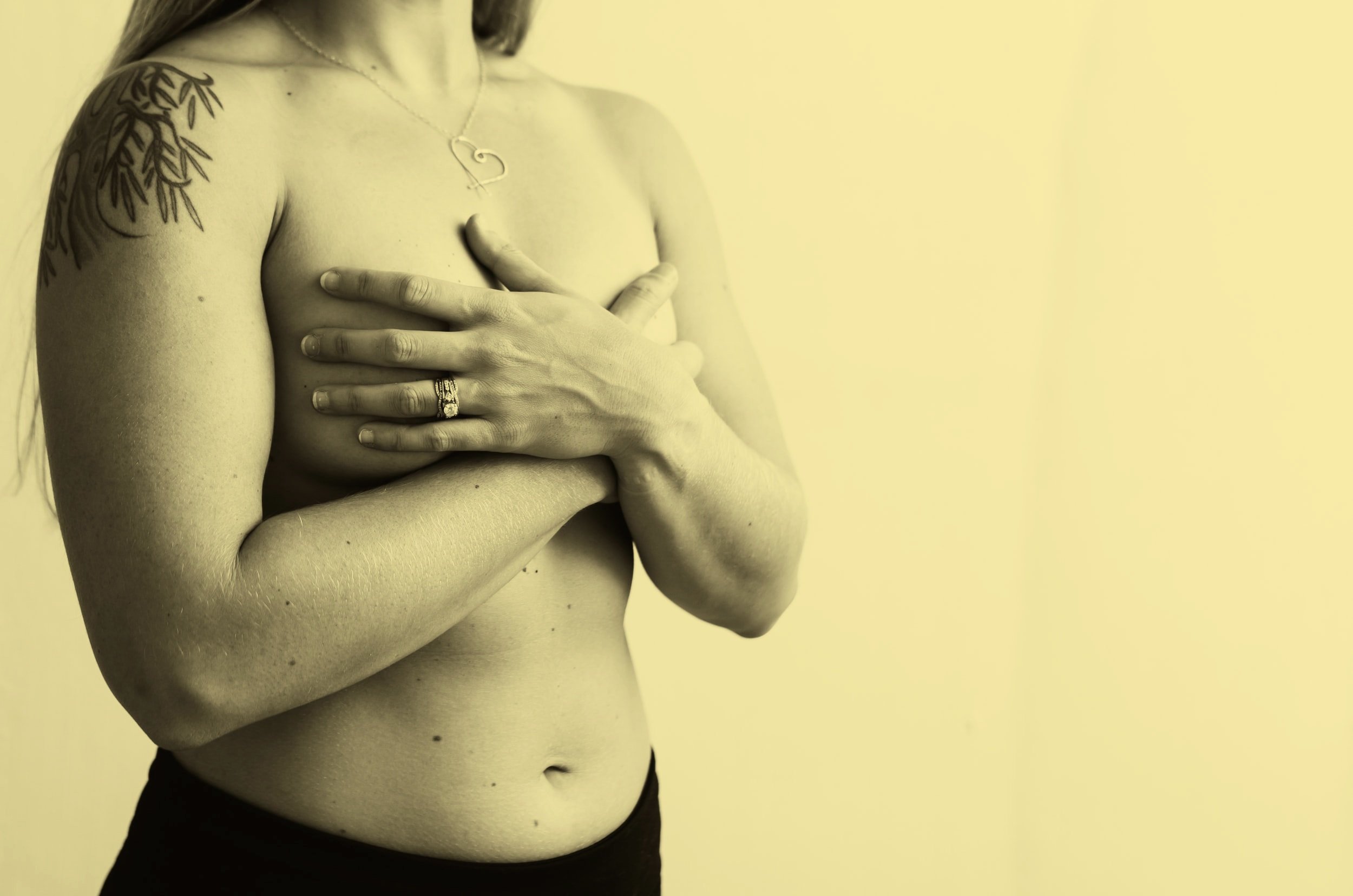the let down
Topping off my glass of merlot, my sister half-turned to me and said, “Sometimes I get this weird tingle in my breasts,” before her voice dropped, her mind already pulling the lever on an alternate train of thought. A tentative description, perhaps a nod to the breast cancer she had beaten once, before it took offense and moved to her liver--but more likely one of the moments when we were oversharing simply because we could. For us, sharing the strange and occasionally horrifying health legacies left to us by our genetic predecessors is our own unique love language.
Hands pressed palm to palm, we compare the size and shape of fingernails that swoop up instead of lying flat, a subtle ancestral rebellion from the nail bed. A sisterly show-and-tell for the galaxy of scars which constellate our bodies, or a candid conversation on our various wrinkles, already spreading like dark magic from face to neck to hand. Each word is a reminder that genetics will bind us tightly together, no matter how far apart we seem. Eight years in age or 800 miles in distance, we often feel this distance keenly.
As the elder, and thanks to the cancers which have massacred her soft tissues over the last decade, my sister has a more expansive understanding of the quirks of the body. Subsequently, it is she who most often acts as teacher in these dialogues. Finding one subject in which I might be the teacher was an unexpected, almost gleeful, indulgence. “That’s exactly what the letdown feels like,” I explained, as my hand lightly gestured to my own chest.
Any mother who has breastfed a child will recall the sensation of the let-down: the warm prickles of biological anticipation as the milk is called down from the ducts to wind its way from the rock hard breast to nipple to mouth. It is the sacred communication between breast and child, a feeling which is buried deep in evolution and entirely unforgettable. My sister listened quietly and as scientists do, immediately categorized this new knowledge, filing this piece firmly on the shelf labeled: “Things I Will Never Know Because Cancer is a Dick.”
Of course, there are let-downs, and then there are let downs. Ten years earlier we had shared a different conversation, but it was another rare occurrence when my knowledge trumped hers. My husband handed me the phone while I was nursing my eldest child, and I reflexively switched breasts to allow the phone access to my right ear. “Mags, I’ve got an appointment with a fertility specialist,” she shared. At the ripe age of 37, my sister had decided it was time to become a mother--my own breasts tingled in anticipation.
When they discovered the tumor several months later, it was removed, along with all her reproductive organs. My sister is many things, but she can never be a mother. She has nursed herself back to health more times than is fair, but she will never nurse a child. Yet, my sister lives, and this is more than enough.
I turn forty this year and I still struggle with knowing the things I want to teach my sister but cannot: The intense squeeze and burn of a child leaving your body. The tingle of a breast that is heavy with milk. The let-down that causes pain. If I say these things to her, will she know what I really mean? Stay alive. I love you. Please don’t leave me.
Maggie Walcott lives with her family in the wilds of Northern Michigan in a house they built themselves. She has a grossly unused degree in physical anthropology from Michigan State University, and has returned lately to her first life calling: writing. Her pieces have been published in Mothers Always Write, Uncomfortable Revolution, The Dunes Review, Last Leaves Magazine, The Dillydoun Review, and most recently, Every Day Fiction.

